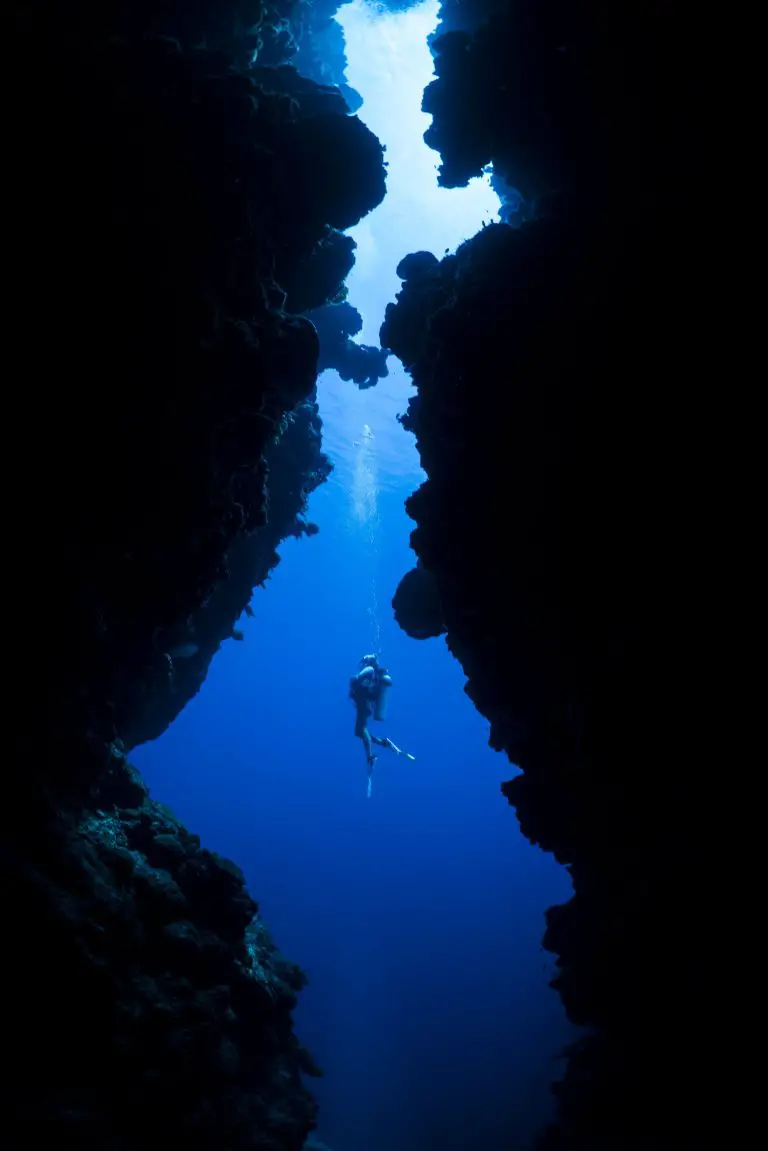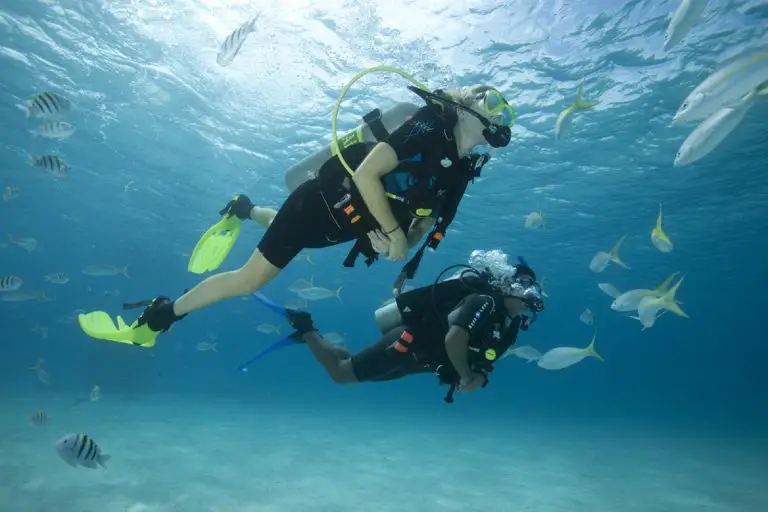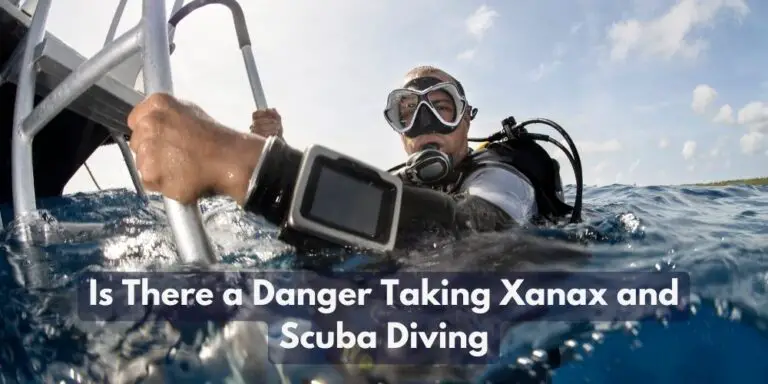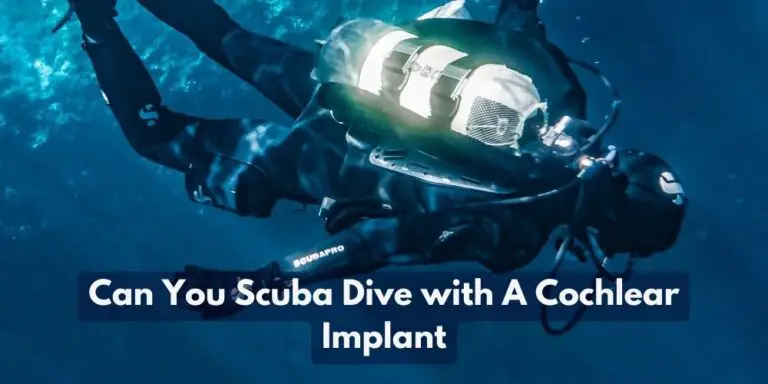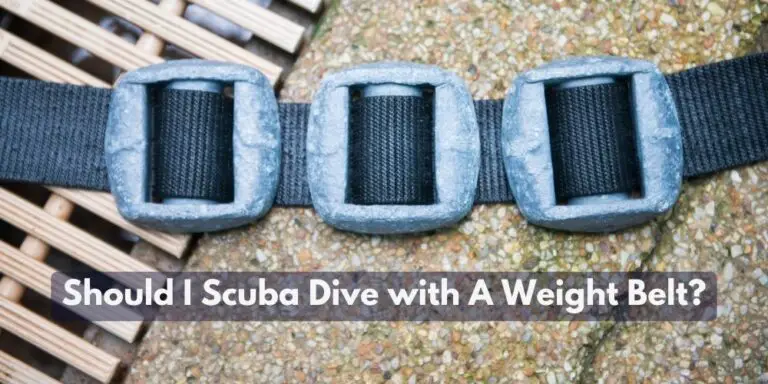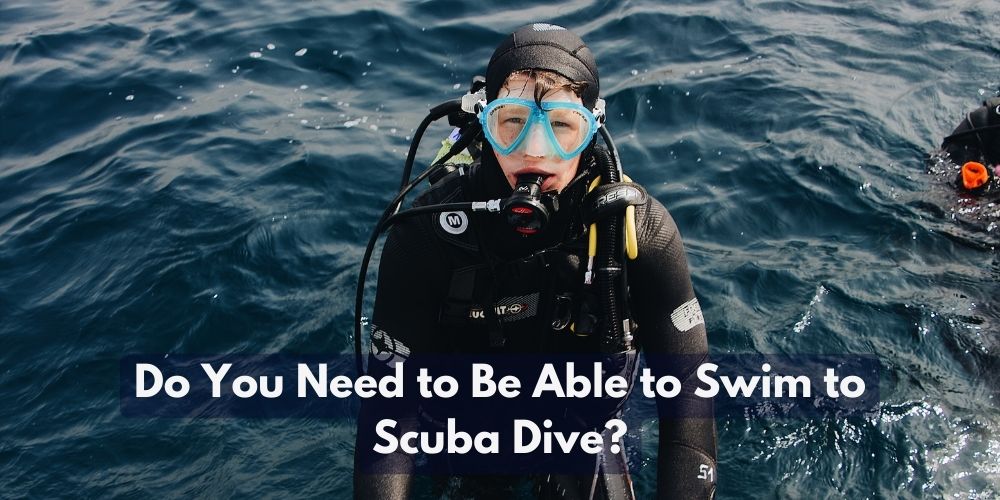
Exploring the breathtaking underwater world has always captivated the adventurous souls among us. Scuba diving, with its enchanting coral reefs, vibrant marine life, and hidden treasures, has become a sought-after recreational activity for those seeking to plunge into the depths of nature’s wonders.
However, as the allure of scuba diving beckons, an essential question arises: Must one possess swimming skills to embark on this exhilarating underwater journey? Do you need to be able to swim to Scuba dive? In this blog post, we’ll delve into the depths of this inquiry and shed light on the correlation between swimming proficiency and scuba diving.
Do You Need to Be Able to Swim to Scuba Dive?
While swimming skills are highly recommended and can greatly enhance the scuba diving experience, it is not an absolute requirement to be an Olympic-level swimmer to explore the underwater realm. It is essential, however, to have a basic level of comfort and confidence in the water.
Scuba diving involves being submerged in a buoyant environment, and staying afloat and maintaining control over your body movements is crucial for safety and enjoyment. With proper training, guidance, and a commitment to building water confidence, individuals without advanced swimming abilities can still partake in the extraordinary adventure of scuba diving.
Importance of Swimming in Scuba Diving
Regarding scuba diving, swimming skills are a fundamental building block for a safe and enjoyable underwater experience. Swimming proficiency allows divers to navigate through the water, maintain buoyancy control, and handle unexpected situations that may arise. It forms the foundation upon which scuba divers can confidently explore the wonders beneath the surface.
Here are some basic swimming abilities required for Scuba diving:
1. Treading Water and Staying Afloat
Being able to tread water effortlessly is crucial for scuba divers. The skill allows you to remain stationary at the water’s surface without sinking or exerting too much energy. Treading water helps conserve your strength, especially during surface intervals between dives or while awaiting the pickup from a boat. Practice using a gentle scissor kick and maintaining a relaxed body position to stay afloat comfortably for extended periods.
2. Maintaining Buoyancy Control
Buoyancy control involves regulating your depth and achieving neutral buoyancy, where you neither sink nor float but remain suspended in the water. Proper buoyancy control allows you to maneuver effortlessly, conserve energy, and avoid damaging delicate marine ecosystems. You can maintain a stable and balanced position underwater by mastering the art of controlling your breathing and adjusting the air in your buoyancy compensator device (BCD).
3. Efficient Forward Propulsion
Swimming efficiently is valuable for divers, particularly during surface swims and when exploring dive sites. The capacity to propel yourself forward smoothly helps conserve energy and enhances your overall diving experience. Practicing proper swimming techniques, such as the freestyle stroke or a modified version, can improve your propulsion and make navigating the water more effortless.
4. Overcoming Currents and Waves
In certain dive locations, currents and waves may pose challenges that divers must overcome. Swimming against currents or traversing choppy waters requires strength, stamina, and the ability to adapt to changing conditions. Developing strong swimming skills enables you to handle these situations confidently, allowing you to explore dive sites that may have more challenging water conditions. Practice swimming in open water, gradually increasing the difficulty as you build your strength and resilience to various currents and waves.
5. Water Entry and Exit Techniques
Entering and exiting the water safely is an essential part of scuba diving. Depending on the dive site, you may need to navigate through different entry and exit points, such as shore entries, boat dives, or jumping off a dock. Swimming skills come into play during these moments, as you must negotiate the water’s surface efficiently and maintain control while removing or donning scuba gear. Practicing proper entry and exit techniques, including controlled dives or controlled jumps, can help ensure a smooth transition between the surface and underwater environments.
Safety Swimming Skills Necessary for Scuba Diving
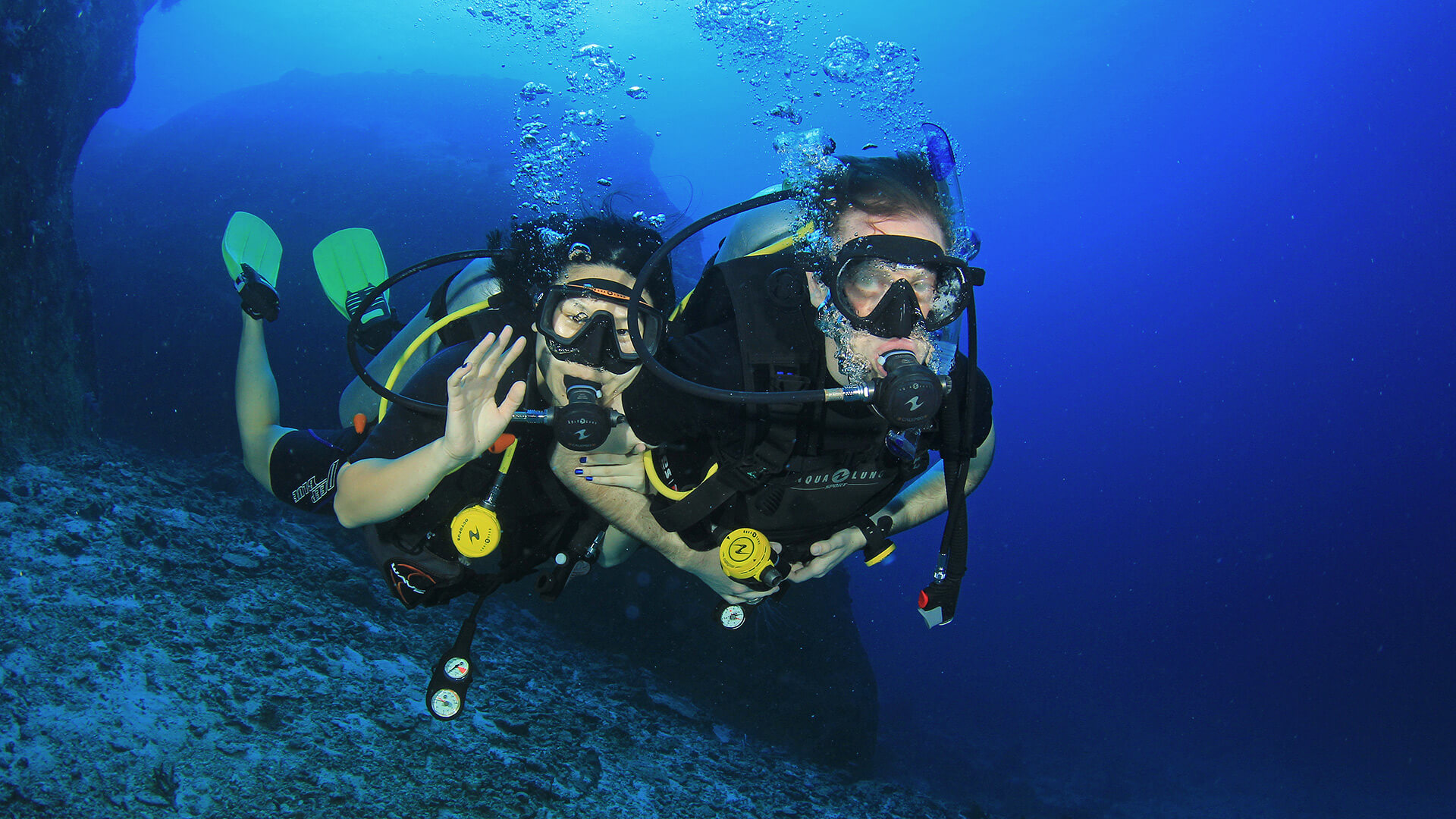
1. Effective Self-Rescue
Swimming skills enable individuals to perform effective self-rescue techniques in emergency scenarios. If you are in distress, swimming proficiently can help you stay afloat, call for assistance, and reach a safe location. Maintaining a composed mindset and utilizing your swimming abilities can increase your chances of self-rescue and minimize the risks associated with the emergency.
2. Assisting Others in Distress
Having strong swimming skills not only benefits your safety but also empowers you to assist others in distress. In emergencies, you may encounter fellow divers struggling in the water and requiring immediate aid. Possessing the ability to swim confidently, you can provide assistance, support them to safety, and potentially save lives.
3. Coping with Changing Water Conditions
Water conditions can change rapidly during emergencies, such as storms, strong currents, or rough seas. Proficient swimming skills enable you to adapt to these changing conditions and maintain control over your movements. By being capable of swimming effectively in different water conditions, you can navigate through challenges, reduce the risk of panic, and make informed decisions to ensure your safety.
4. Managing Fatigue and Panic
It’s common for individuals to experience fatigue and panic, which can harm their safety. Strong swimming skills improve endurance and enhance mental resilience in challenging circumstances. Remaining composed, utilizing efficient swimming techniques, and conserving energy, you can manage fatigue and avoid succumbing to panic, increasing your chances of survival.
Exploring Options for Non-Swimmers Who Want to Experience Scuba Diving
If you’re passionate about scuba diving but lack swimming skills, there are still avenues available to fulfill your underwater aspirations. One option is participating in Discover Scuba Diving programs offered by dive centers and resorts. These programs provide an introductory experience of scuba diving under the supervision of a certified instructor. They typically occur in confined water settings, such as swimming pools or shallow, calm areas, where swimming skills may not be a prerequisite.
1. Participating in Guided or Assisted Dives
Non-swimmers can also consider engaging in guided or assisted dives, offering extra support and safety. During these dives, a professional dive instructor or experienced dive buddy accompanies you throughout the underwater journey. They assist with buoyancy control, provide guidance, and ensure comfort and security. By relying on the expertise of a knowledgeable companion, non-swimmers can still explore captivating dive sites and marvel at the wonders beneath the surface.
2. Special Scuba Diving Programs for Non-Swimmers
In response to the growing interest from non-swimmers, some dive centers and organizations have developed specialized scuba diving programs tailored to their needs. These programs focus on building water confidence, providing additional support, and adapting scuba diving techniques for non-swimmers. With the assistance of patient instructors and modified equipment, non-swimmers can gradually acquire the necessary skills and enjoy the magic of underwater exploration.
Final Thoughts
When it comes to answering the question; do you need to be able to swim to Scuba dive?, swimming skills are highly recommended and significantly enhance the scuba diving experience, they are not an absolute requirement to participate in this thrilling activity. Non-swimmers can still explore scuba diving through guided dives, specialized programs, and introductory experiences. However, developing swimming skills is crucial for safety, independence, and versatility in the underwater world. Aspiring scuba divers are encouraged to prioritize building swimming skills and water confidence to ensure a safer scuba diving journey.

